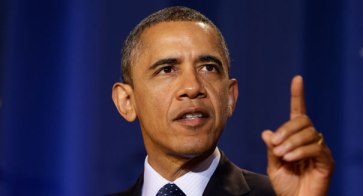What is happening?
Prime Minister David Cameron is to deliver a speech on the UK’s future in the European Union on Friday in the Netherlands.
Why the big deal if it’s just a speech?
Mr Cameron has been facing mounting pressure from within the Eurosceptic ranks of his own Conservative Party, and the UK Independence Party, who are unhappy with the current relationship between the UK and the European Union. There have been calls for a referendum to be held, and his own MPs want to see action on the Conservative election pledge to “bring back” powers to Westminster from Brussels. For months now, the promise has been that these questions will all be answered in a big speech. And this Friday, we get that speech.
What do we think Cameron will say?
Based on a BBC radio interview this week, we can expect Mr Cameron to say that he plans to renegotiate parts of the UK’s relations with Europe and, if and when that is achieved, promise to put that changed membership package to the British people after the next general election. So that referendum, obviously, also depends on the Conservatives winning a majority in 2015.
What sorts of powers does the UK want back?
There is a cross-government audit under way looking at where the EU has powers over life in the UK. The idea is that each one will then be examined to see whether it is necessary or whether the power could be “brought back” to the UK. Areas it might include are the Working Time Directive, which imposes employment rules such as limiting the working week and giving EU workers a minimum number of holidays each year. The UK is also keen on opt-outs from policing and criminal justice measures. The 2010 Conservative manifesto said: “We will work to bring back key powers over legal rights, criminal justice and social and employment legislation to the UK.”
So if we know all that, why watch the speech?
There are still a host of unanswered questions, not least about what would happen if the rest of Europe refused to agree to the UK’s demands. Will the prime minister threaten to hold an in/out referendum on EU membership, if new terms of membership aren’t agreed? And if they are agreed, what would happen if the British people then rejected them in a referendum – would that lead to an in/out vote?

Why does Cameron think he can agree changes with EU leaders?
The recent eurozone crisis has led those countries using the single currency to believe that they need closer integration in future – a move which will further increase the gap between the euro and non-euro EU members. Mr Cameron says there needs to be a new EU treaty to facilitate the eurozone integration, so, as part of negotiations, there is a chance to redefine the membership rules for countries like the UK.
So does this all mean that the UK’s going to leave the EU?
David Cameron says that he opposes the idea of the UK leaving the EU (which the UK joined in 1973). However he did add during his BBC radio interview: “Would Britain collapse if we left the European Union? No, of course not. You could choose a different path. The question is, what is in our national interest? I’ve always been very clear it’s in our national interest as a trading nation to be in the single market.”
What do critics of Cameron say?
Well that depends which critics you are talking about – there are those attacking him from the pro-European viewpoint and others from the Eurosceptic viewpoint.
What do the pro-Europeans say?
Deputy Prime Minister Nick Clegg has warned that proposing a referendum at a future date would cause uncertainty and have a “chilling effect” on jobs and growth. A succession of business leaders have spoken up in favour of UK membership of the EU and the US and a range of European politicians have also warned of negative results if the UK left the EU.
What about the Eurosceptics?
There are a sizable number of MPs, mostly Conservatives, who want a straightforward referendum asking the British people whether or not the UK should stay in the EU. The UK Independence Party, whose main policy is to pull out of the EU, has also seen its poll ratings rise. They argue that there is nothing to fear, as a global trading nation, from leaving the European Union.
Why is Cameron delivering the speech in the Netherlands?
Downing Street say that he wanted to “set out his view on the EU and Britain’s relationship within it” and giving the speech in the Netherlands would allow the PM to speak in a “founder member of the European Union, not dissimilar from the UK, with a strong tradition of global trade”. He’s not the first PM to cross the channel to deliver a big EU speech – Margaret Thatcher and Tony Blair both did the same when they were in No 10.
(FROM THE BBC WEBSITE)
Digestible Politics
https://twitter.com/Digest_politics
http://www.facebook.com/pages/Digestible-Politics/476112109093593
https://www.youtube.com/user/DigestiblePolitics?feature=mhee




